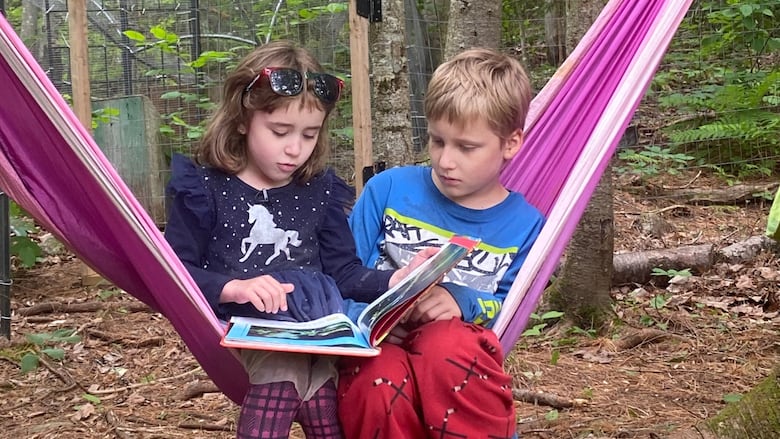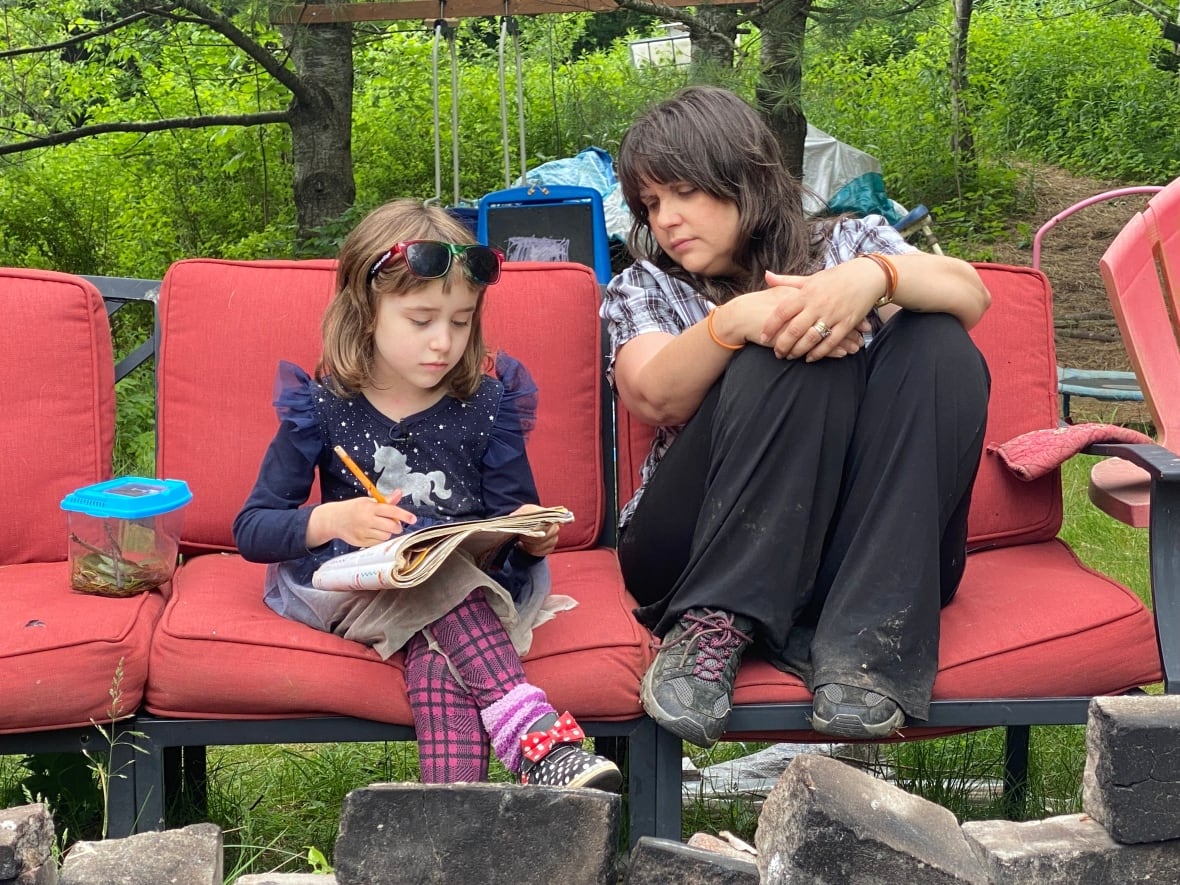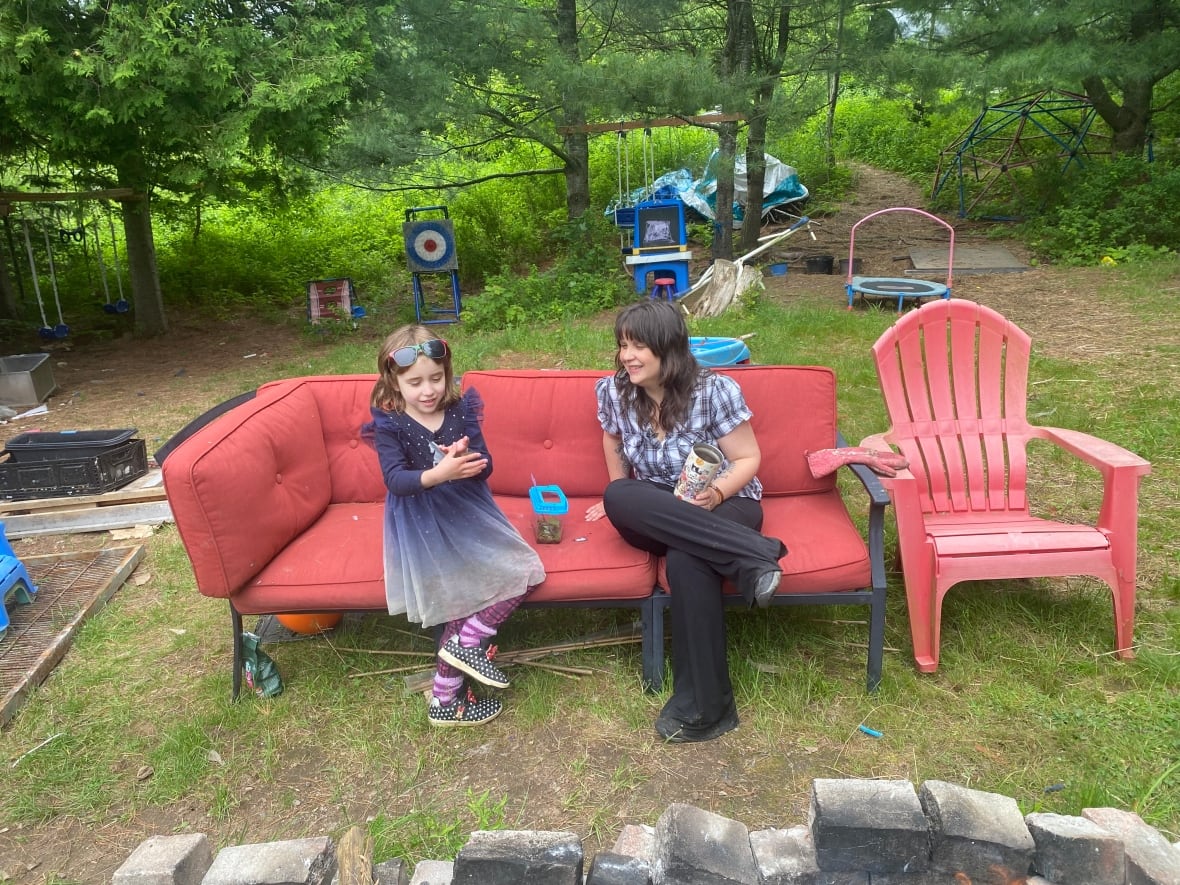How this N.B. student lost speech therapy services, then got them back
Athena Green has a speech disorder and was initially told she couldn't get help because she was homeschooled

It was a difficult few weeks for Lisa Green and certainly not how she wanted to start the summer break, fighting for something critical to her daughter Athena's ability to communicate.
Six-year-old Athena has apraxia, a speech disorder that causes her to do things such as leave out sounds or mix up words and consonants.
Near the end of the school year, her parents received a note saying speech therapy services, which Athena had been getting at Westfield School, would no longer be made available to homeschooled students.
Shocked, Green started to campaign to get the service back, which she ultimately did when someone in the district sent her a note last Friday saying the district had reversed its decision.
Green summarized the note: "We just wanted to let you know we changed our minds, Athena will be back in speech [therapy] in September. … It was fantastic news."
But Athena never should have lost the service in the first place, according to Green, who said such help shouldn't be taken away from kids just because they're homeschooled.
Athena is an animated girl. Like most six-year-olds, she's curious, lively and engaged, whether she's showing off her caterpillar collection, playing on the swings or the trampoline, or reading to her brother in her backyard hammock in Clarendon, a small rural community near Welsford.
She also loves to talk about what she's doing and what she's thinking, but she's difficult to understand because of the apraxia.
"[It's] a motor-like issue with your mouth, so there's nothing wrong brain-wise," Green said. "She knows exactly what she wants to say but it kind of gets lost in translation."

Green said it mattered less when Athena was younger and other kids were just learning to speak properly too. As she's gotten older, she's had a harder time communicating with adults and children, and she has been bullied as a result.
"Even at home and living with her, you have to really work at it. She knows that we can't understand her, and thank God, she doesn't get angry or anything.
"She'll point to things now and be like, it rhymes with or sounds like [that] ... so it's kind of a day-to-day struggle for her in terms of communicating with you."
Athena has been working with speech-language pathologists since she was very young, beginning with the Talk With Me program funded by the Department of Education and Early Childhood Development.
Even though her parents decided to homeschool her, as they have with her three older brothers, Athena continued to work with someone at Westfield School after she entered Grade 1.
Green was thankful Athena received the service, even though she was homeschooled. Whenever she takes breaks from the weekly session, as happened last summer and early fall, Green and others in her life notice the difference.
"Last year, she did get worse and then later on in the year, when she was starting speech [therapy], even our girl guide leader was like, 'She's so much clearer now,'" Green said. "It really does help."
Athena also has a great relationship with her speech-language pathologist.
"She loves it," Green said. "They have a good system where they play a little game and then [say] a bunch of words and play a little game. Most kids love it."
Resources are a challenge across Canada
Dana Fergusson, a Nova Scotia speech-language pathologist who works in schools in the Chignecto Central Regional Centre for Education, says children like Athena need intensive speech therapy, and they all should have access, whether they're in the public system, independent schools or homeschooled.
But resources are stretched thin, she said, and not just in New Brunswick..
"Resources are the challenge and it's across the country," Fergusson said. "It comes from two issues right now, at least in Nova Scotia. It's funding. We need more — 100 per cent. But we [also] have vacant positions. We don't have the people graduating to fill our positions."
Anglophone South cited resource issues when it made the original decision to cut the service.
Shortly after Athena's last session of the school year, Green received a letter from Jennifer Grant, the acting director of education support services.
"Due to higher demands for these services, we will no longer be able to extend this benefit to students outside the public school system," she wrote.
Green was surprised to get the letter not long after Athena's speech-language pathologist said they'll have to resume the sessions in the fall.
"We just ended our sessions with her because it's summertime, and she [said] she definitely needs to continue," Green said.

The letter, which was also sent to other affected families in the district, reminded parents that it's department policy that these services are only available to students in the public system. Until now, the district had been extending them to homeschooled and independent school students as a "courtesy" because the schools had the capacity to serve them.
Green started an online petition and reached out to school officials and politicians to try to get the service restored.
CBC News contacted other districts and learned many were still providing the services Athena had just lost.
District has a change of heart
A few weeks after Anglophone South cut the service, the district reversed its decision after discussions with the Education Department.
"[The district] will be able to continue to offer your learner access to Speech-Language Pathology (SLP) services to homeschooled learners and those enrolled in independent schools," Grant wrote in a letter sent to parents June 26.
"We look forward to working with your child and supporting their growth and learning."
The district gave no reasons for the reversal, and neither the district nor the Education Department responded to requests for interviews.
Green is still frustrated by the lack of communication, but she's happy
"I was so thrilled because I hadn't heard from anybody," Green said. "And I think every day that passed by, I got more and more worried."


